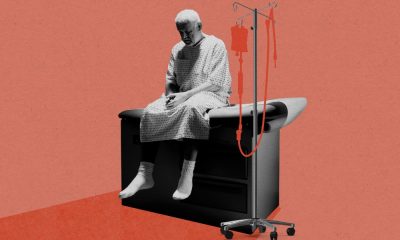Weight gain became inevitable for Meredith Schorr during the early phase of the COVID-19 pandemic. As a nurse in the intensive care unit at Banner University Medical Center in Phoenix, Arizona, her constant exposure to stress, intake of PTSD meds and poor diet led her to gain 50 pounds within a year and a half.
So when a friend recommended Ozempic to her in February 2022, Schorr grabbed the chance to change her life and return to her relatively fit and healthy body before the pandemic. The Food and Drug Administration-approved prescription medication is recommended for type 2 diabetes. But it has since gotten more famous for its guaranteed weight loss side effect.
Schorr did reap the benefits of taking the drug. But things took a different turn when the 25-year-old decided to stop taking Ozempic in January 2023 as she was contemplating starting a family.
“Around that five to six-week mark, I began to feel super hungry, and almost ravenous for a little bit,” Schorr told People this week, recounting her experience before and after using Ozempic.
According to her, the intended effects of the drug were still there for a few weeks after stopping its use. But when her body finally readjusted to Ozempic’s absence, she started gaining weight again.
Schorr admitted to gaining 10 pounds within two months of stopping the diabetes drug. And that’s because her appetite came back when she no longer took Ozempic.
“I was super hungry all of a sudden. So after that phase, I was able to kind of see, ‘Oh, I gained 10 [pounds]. I don’t want to lose any progress that I had made,’” she said.
Schorr shared that her experience with Ozempic was not easy. Within 24 hours of taking her first shot, she had gas pains, cramping, constipation and intense nausea. But those did not stop her from continuing its use to lose weight.
When Schorr managed to combat Ozempic’s side effects, she was able to focus on her goal, and that’s when she lost weight “pretty drastically.” So when she regained some of the weight back after stopping the drug, the practicing nurse became determined to make long-term changes to her lifestyle.
“There’s risks and benefits to every medication, so I just knew that a healthier lifestyle and habits was going to greatly benefit me,” Schorr told the outlet.
Schorr is still thankful for Ozempic even though her appetite returned since stopping its use. Unlike many former users who blamed the drug for their weight gain, she credits the diabetes medication for the big change in her life.
“I feel like [Ozempic] has been vilified lately, but it was a really great tool for me and really changed my life. Physically, I’ve been doing really well. I’ve been exercising so much more than I used to, eating right. I feel a lot more comfortable in my own skin. I feel really grateful,” she said.
Ozempic remains popular as more users flaunt their body transformations on social media, crediting the diabetes drug for the remarkable and fast weight loss.
However, an expert recently warned that it was never approved for “casual weight loss.” Dr. Thomas Su, a plastic surgeon, told Us Weekly last week that the drug should not be recommended for people close to their ideal weight.
“The drug was never meant to be for people who are near their ideal weight. It’s not even approved by the FDA for casual weight loss,” he said.
The FDA approved Ozempic for chronic weight management in overweight or obese adults with a weight-related conditions, including type 2 diabetes and high blood pressure. It was never meant for people looking to shed weight alone.
Early Medical founder Dr. Peter Attia has also warned that using Ozempic and Wegovy for weight loss could lead people to lose more muscle than fat.
“They’ve lost muscle mass at a rate that alarms me,” Attia said of his patients who used the drugs for weight loss. “Ultimately, it’s not your weight that matters, it’s your body composition and your health.”
















